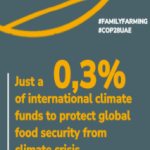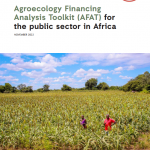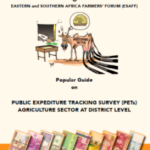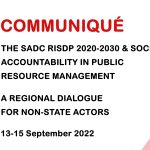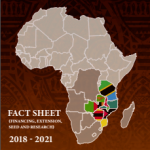Press Statement on the Promised US Government funding on Agriculture in Africa
7/8/2009

Press Statement on the Promised US Government funding on Agriculture in Africa-held on 6th August, 2009 at Hotel 680, Nairobi Kenya
In the wake of the beginning of the seven African nation’s tour by the American Secretary of State Mrs. Hilary R. Clinton, the US President Barrack Obama said in a video broadcast that the G8 Caucus had pledged to set aside US$ 20 Bln of which the US will contribute US$ 3.5 Bln to develop agriculture in the African continent.
KESSFF, being a member of the Kenya Biodiversity Coalition-KBioC, lobbied to take advantage of the moment to hold a press conference to voice ‘our concerns’ on the usual habit of the government channelling the money to misplaced priorities in agriculture and leave out small scale farmers.
On 6th August 2009, the KESSFF Executive Committee led by the National Chairman, did just that at the 680 Hotel.
The Press Conference was attended by various media houses in Nairobi. Appended here below is the full text of the Statement:
Press Statement on the Promised US Government Funding on Agriculture to Africa
‘‘Yesterday, in a video tele broadcast to the AGOA conference in Nairobi, the US President disclosed that the G8 Caucus has set aside 20 billion us dollars to develop agriculture in the continent. of this amount the us will contribute 3.5 billion dollars.
The investment is welcome but we feel that most of this will be channelled to the wrong priorities in agriculture.
Kenyan small scale farmers and community groups under the umbrella of the Kenya biodiversity coalition (KBIOC) wish to discuss the visit to the Kenya agriculture research institute (KARI) by the us secretary of state Hillary Clinton and the Secretary of agriculture Tom Vilsack showcasing the Obama Administion’s betrayal to Africa’s small scale farmers and misplaced priorities on how to achieve sustainable food security in Africa. KARI has been a focal point of U.S. and Monsanto funding to develop GMO biotechnology crops in Africa.
we recognize the importance of investing in agriculture but caution that chemical-intensive production methods continue to stress the soils end up to have adverse health and environmental effects, while ‘modern biotechnology’ (Genetic Engineering) has contributed to hardly any verifiable positive impacts on equitable and sustainable development.
Kenyan Small Scale Farmers and in the rest of Africa share similar challenges. the farmers in fact expect of the U.S agriculture grant to take a new approach that will best address concerns around food security, sustainable farmers livelihoods, irrigation technologies that will avail water for irrigation, environmental conservation, and affordable credit facilities for farm inputs, guaranteed markets for their farm produce, and improved rural infastructure.
We are deeply concerned that the visit to the Kenya Agricultural Research Institute-KARI by the us foreign Secretary of State Hillary Clinton and secretary for agriculture tom Vilsack, will be used as a vehicle to channel these monies back to the Multinational Corporations who fund and benefit from GE biotechnologies. This money will not therefore have any tangible benefits to local African farmers neither will it enhance food security.
We therefore call the Obama Administration to work in consultation with farmers at the grassroots in the usage of these funds. Farmers do not need GE technologies. These have repeatedly failed and frustrated farmers where they have been in use for the last few years. The most recent example is the massive failure to flower and pollinate of Monsanto’s BT maize (Mon 810) in South Africa.
This biotechnology is to blame for the huge shortfalls in maize production in that country.
We again urge the Obama administration to fund local farmers in Africa directly through their institutions. this is the most sustainable way to ensure food security in poverty stricken Africa as projected by the recent un studies on agriculture in Africa-the international assessment of agricultural knowledge, science, and technology for development (IAASTD)’’.
SIGNED:
KENYA SMALL SCALE FARMERS FORUM-KESSFF

















